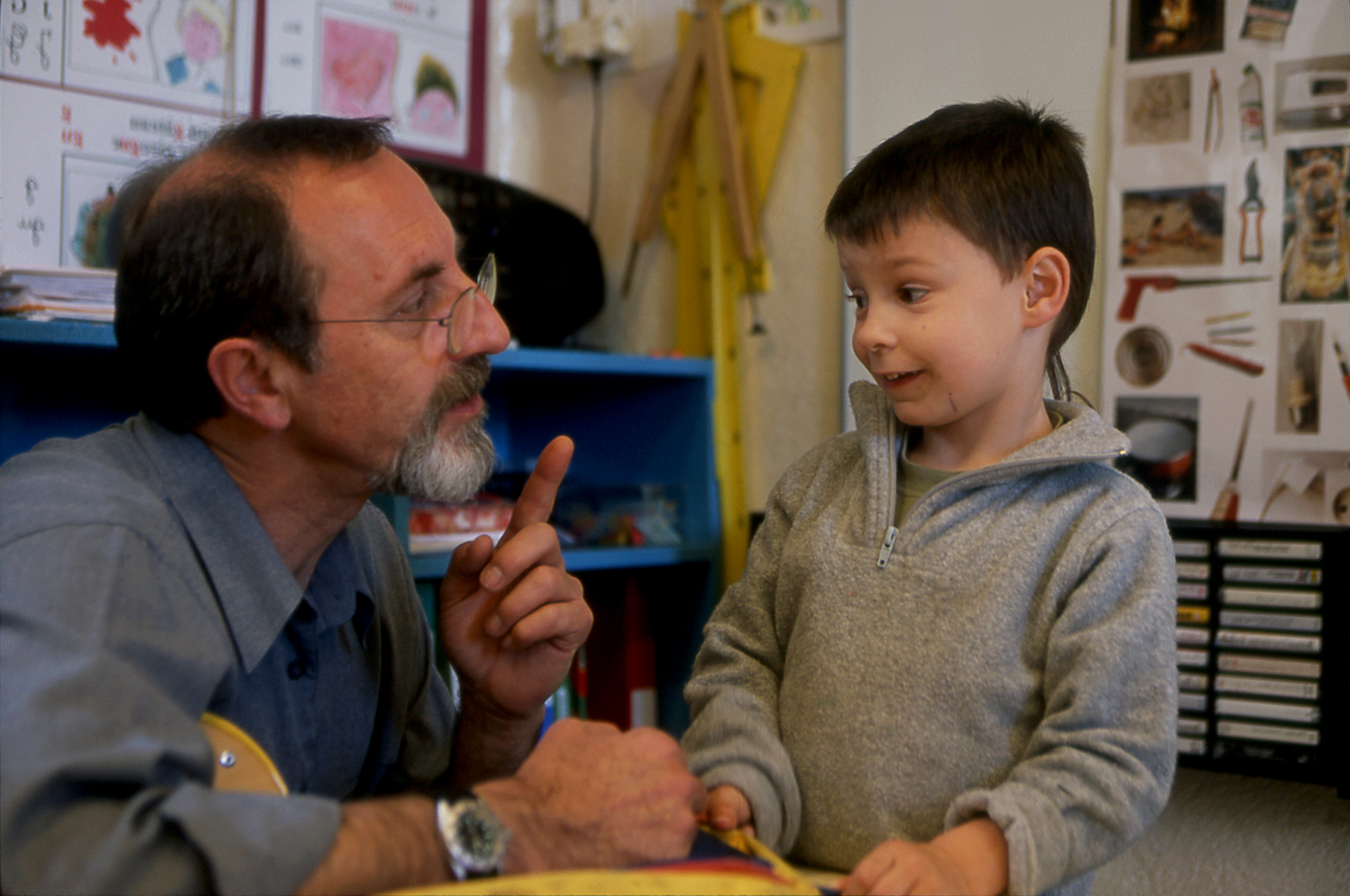Massif hit
Geoff Andrew / Time Out, London – June 11-18, 2003
Probably the best new film I’ve seen this year, Etre et Avoir (To Be and To Have) has been a massive hit in France and brought director Nicolas Philibert acclaim from festival audiences worldwide. The success is perharps surprising for a modest documentary about a single-class school in a village deep in the Massif Central. But something’s kicked in, and it can’t just be Jojo, cutest of the dozen or so kids whose progress Philibert charts between the post-Yuletide return to school and the summer term’s end. For this funny, moving, wise film works on many levels : it’s a wondrously sensitive portrait of a group of kids growing before our eyes ; a subtle study in goodness as incarnated by teacher Georges Lopez ; a poetic evocation of the rhythms and textures of rural life ; a look at the relationship between school and family life ; a record of a kind of schooling now in decline ; a reminder of that forgotten time when we didn’t know that ‘five’ is followed by ‘six’, and of the terrible difficulty, suffered by many at one time or another, of simply talking ; and, finally, a calm contemplation of life, death, love, pain and the whole damn thing. Rich pickings for a modest doc of 100 minutes.
But then Philibert, 52 years young, six or seven docs to his name, has been winning praise for his work for years. Even so, you get the feeling he’s a bit bemused by his latest’s performance. « It’s not as if I set out to deliver some grand message on education ; I’m no expert in that field. I just wanted to show you can make cinema with something everyday, which nine out of ten producers would think too banal, too short on drama and spectacle for a movie. But children learning to read, write and count is not banal ; they face big challenges on a daily basis, they’re dealing with the unknown… which we all fear. All films are about overcoming problems of some kind, and here, the kids and the teacher have lots of obstacles to surmount. »
Indeed. Jojo moves from being taught the importance of hygiene to contemplating infinity ; Julien and Olivier confront questions of insults and bullying ; shy Nathalie faces the nightmarish prospect of changing school ; and Monsieur Lopez wonders what he’ll do in 18 months, when he retires. Some scenes show children in tears ; did Philibert have doubts about filming such moments ?
« Of course, but let me explain my method. The camera’s gaze always changes people’s behaviour, but I try to create a situation where that change will be minimal. I don’t hide the camera – that’s dishonest – nor do I try to get people to forget it. I just try to get them to accept it, by winning their confidence and trust. I stay close, and am always attentive to their moods, wishes and needs ; if they don’t want to be filmed at any point, I respect that. »
« In the scenes when they cried, I didn’t know that’d happen when we began filming ; and though I felt odd shouting them in tears, I did continue, because I’d explained to them, their parents and Lopez that I’d be filming lots of stuff, and I’d select what to use later. It’s in the editing that the responsability really lies ; I was showing private lives to the world. Those lives are fragile – the kids have to grow up with theese images of them at school – but I did feel they were strong enough to live with the images I used. In fact the kids, their families and Lopez were first to see the film, and seemed proud of it. The only bad thing is that after it became a hit, tourists would go to the village and hang around to take photos of the kids, which is a bit heavy. I feel sort of responsible, but there’s nothing I can do except hope it calms down. Happily, the parents have their feet on the ground – no one expects their kid to become a star ! »
Philibert visited countless establishments before setting on Lopez’s place in the Auvergne : « I met many people with great skills and passion, but he alone had the kind of personality I thought would work on film : slightly authoritarian, kindly but not too chummy with the pupils, a little reserved and so a bit mysterious, and an embodiment of the ethos of a French Republican education – equality of opportunity even for an immigrant’s son ! That’s why I had one scene where I broke style and had him talk to camera ; I wanted to know a bit about him. »
For all its apparent simplicity, the film does take poetic licence. A scene of a misbehaving Jojo being detained during playtime was built up from footage shot over five days ; for others, as when Lopez tells pupils about his retirement or tests the limits of Jojo’s numeracy, Philibert himself suggested the topic for discussion. And of the 60 hours’footage shot (with just 40 minutes in class each day, so as not to disrupt studies), about eight were just of landscape. « Every day I’d go out looking for the right light. That I adored. »
